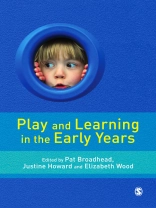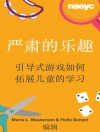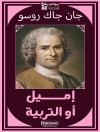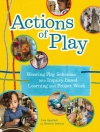Providing high quality play experiences is an essential part of good early years education, but this can pose a challenge for practitioners who face pressure from a more didactic primary curriculum, and from parents worried that their children will fail to acquire essential skills and knowledge.
By helping the reader to develop their understanding of the complex relationships between play and learning, this book examines current theoretical perspectives on play, alongside examples of recent and innovative play research from a range of disciplinary and methodological perspectives. With contributions from leading play scholars, it brings together theory, research, policy and practice in relation to play and learning in early years settings. The emphasis is on the relationship between play and learning, and play and pedagogy, and the need to understand these dimensions more substantially in order to teach with confidence.
Included are chapters on:
– the influence of play on thinking, problem-solving and creativity
– cooperative play and learning
– play, risk and outdoor learning
– learning to play in cultural context
There are chapter objectives, reflective points, reflective tasks and suggestions for further reading throughout, to facilitate critical thinking and encourage independent study. Suitable for early years practitioners, early childhood students at undergraduate and postgraduate levels, and all those who work with and care for young children, this is an exciting and thought-provoking book.
Tabela de Conteúdo
Introduction – Elizabeth Wood, Pat Broadhead and Justine Howard
Developing Integrated Pedagogical Approaches to Play and Learning – Elizabeth Wood
Learning to Play in a Cultural Context – Liz Brooker
Co-Operative Play and Learning from Nursery to Year One – Pat Broadhead
′Born to Play′: The Biocultural Roots of Rough and Tumble Play, and Its Impact upon Young Children′s Learning and Development – Pam Jarvis
Playing on the Edge: Perceptions of Risk and Danger in Outdoor Play – Helen Tovey
Identity in Young Children′s Drawings: Power, Agency, Control and Transformation – Emese Hall
Supporting a Playful Approach to Drawing – Kathy Ring
Play Is a Complex Landscape: Imagination and Symbolic Meanings – Maulfry Worthington
Making the Most of Play in the Early Years: The Importance of Children′s Perceptions – Justine Howard
Play Metacognition and Self-Regulation – David Whitebread
Conclusion: Understanding Playful Learning and Playful Pedagogies: Towards a New Research Agenda – Pat Broadhead, Elizabeth Wood and Justine Howard
Sobre o autor
Elizabeth Wood is Professor of Education at the University of Sheffield. She teaches on a range of post-graduate programmes and runs in-service courses for teachers and early years practitioners. She has worked on a number of collaborative research projects with teachers in early years and primary schools. Elizabeth co-directed two ESRC funded research projects with Neville Bennett: Reception Teachers′ Theories of Play (1995-97) and Progression and Continuity in the Early Years (1999-2000). She has authored books and articles based on her research interests in play, young children′s learning, early childhood pedagogy, equity and equality, policy critique and collaborative action research.












